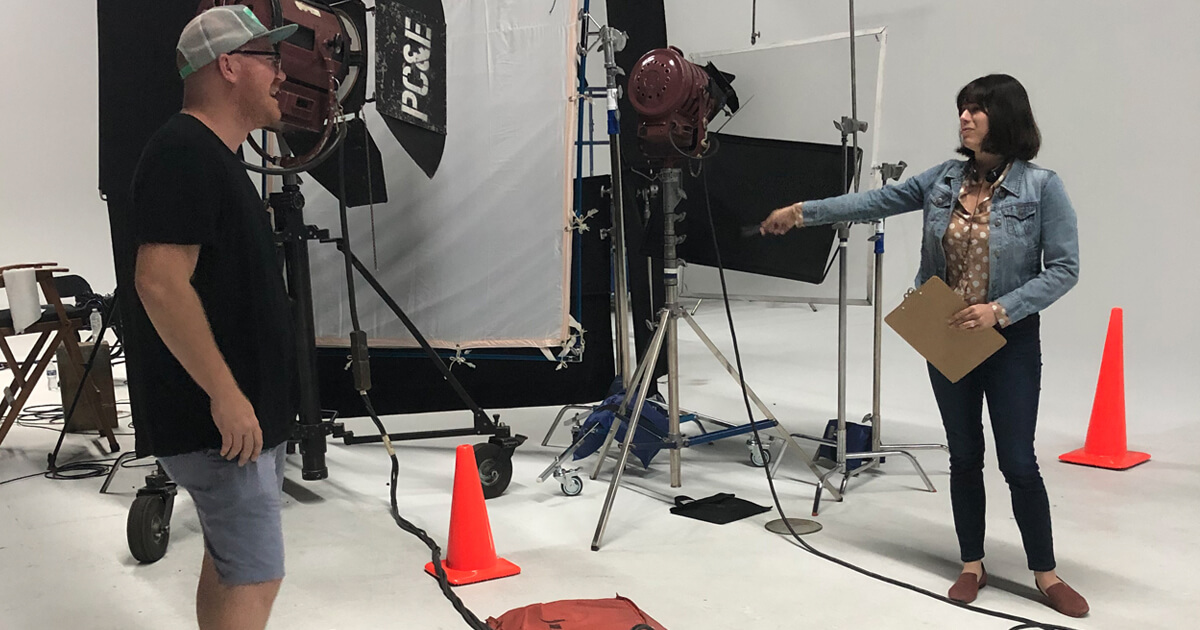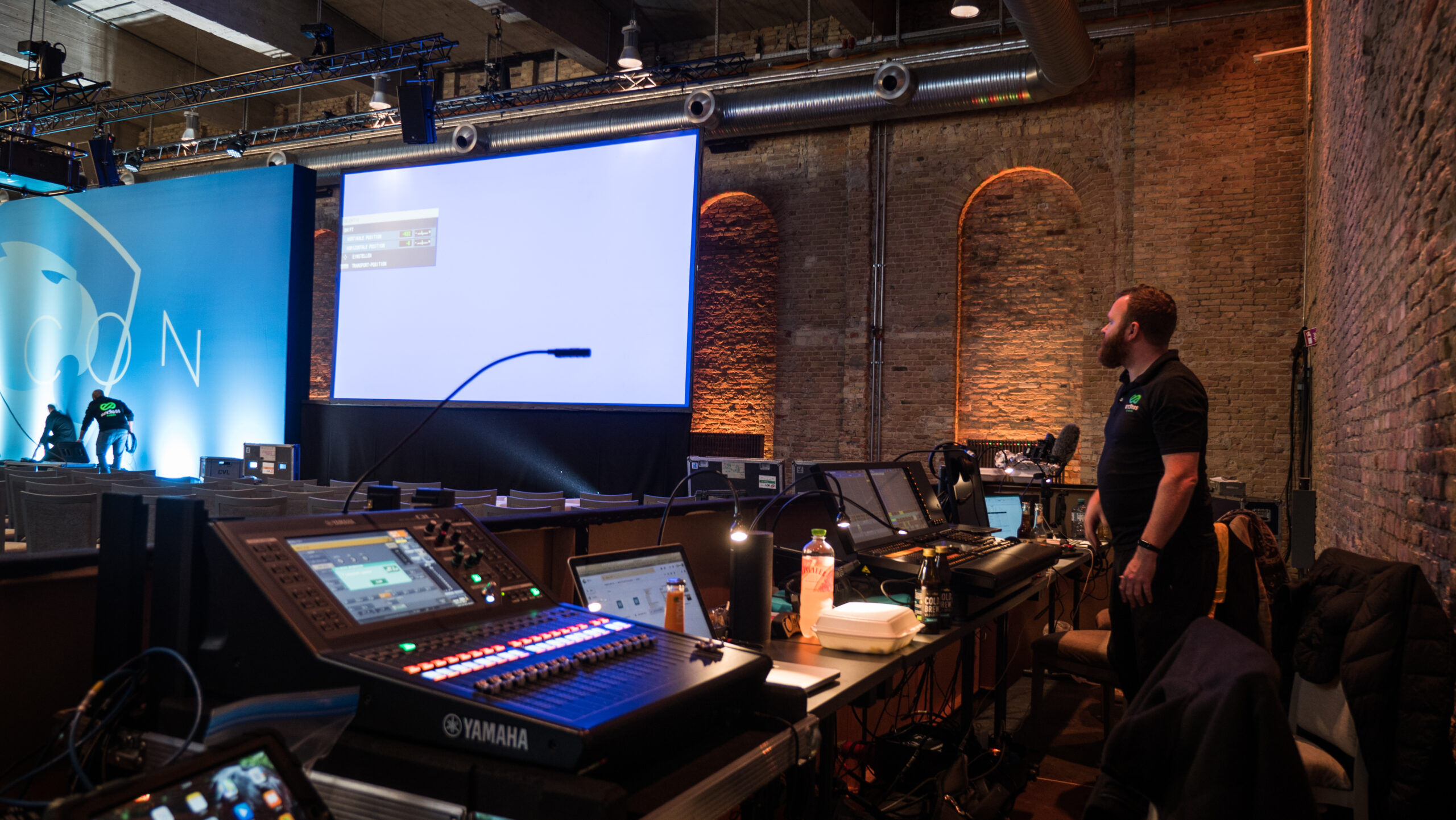Ways event production charlotte helps you connect with your audience
Exactly How Event Production Works: A Comprehensive Check Out the Process
Event production is a complicated and structured procedure that requires cautious preparation and execution. It begins with developing clear purposes and understanding the target audience. Each step, from budgeting to location choice, plays a vital function in ensuring success. As the procedure unfolds, different aspects should line up seamlessly. Yet, the subtleties of this elaborate operation commonly go unnoticed. What are the crucial phases that contribute to a memorable event?

The Preliminary Drawing Board
When beginning on event production, mindful preparation is important to ensure a successful end result. The preliminary drawing board serves as the structure for all succeeding initiatives. Throughout this stage, event producers need to specify the event's function and purposes plainly. Determining the target audience helps tailor the experience and messaging, assuring importance and engagement.Producers should also take into consideration the event format, whether it be in-person, digital, or crossbreed, as this will certainly influence various logistical aspects. Selecting an appropriate day and location is critical, as it influences ease of access and availability.Furthermore, putting together a reliable group is fundamental for separating obligations and streamlining communication. Developing a timeline with turning points warranties all tasks are finished on routine. This phase includes thorough research study, including determining prospective obstacles and designing techniques to reduce threats. Inevitably, a well-structured initial preparation phase establishes the tone for an effective event production journey.

Budgeting and Resource Allotment
In event production, efficient budgeting and resource allotment are important for success - event production charlotte. Establishing financial specifications sets the foundation for all subsequent choices, while resource circulation approaches ensure that every element of the event is effectively supported. With each other, these components aid preserve control over expenses and optimize the usage of readily available resources
Establishing Financial Parameters
Developing financial criteria is vital to the success of any kind of event production, as it sets the foundation for efficient budgeting and source allotment. This procedure starts with defining the total budget plan, which incorporates all elements of the event, including place prices, event catering, and advertising. By identifying available funds, event organizers can focus on expenditures and designate resources accordingly. On top of that, it is important to perform complete market study to prepare for prospective prices and identify financing sources, such as sponsorships or ticket sales. Developing clear economic criteria additionally aids in risk management, enabling planners to set apart contingency funds for unanticipated costs. Inevitably, a well-defined budget serves as a roadmap, assisting the event production group towards accomplishing their goals while keeping economic control.
Resource Circulation Approaches
Effective source circulation techniques are essential for maximizing the impact of an occasion while adhering to budget restrictions. Successful event production calls for a meticulous approach to budgeting and resource allowance. Planners have to prioritize necessary elements such as place, wedding catering, and innovation, making certain that funds are allocated to areas that enhance attendee experience. A detailed spending plan ought to describe expected expenditures and determine areas for prospective price savings, such as working out with suppliers or checking out sponsorship opportunities. Additionally, tracking expenditures throughout the planning procedure helps avoid overspending. By employing tactical resource circulation, event producers can supply an unforgettable experience while maintaining monetary duty, inevitably adding to the general success of the event.
Place Choice and Logistics
Picking the best location is important to the success of any kind of event, as it establishes the stage for the general experience. Venue selection involves evaluating various aspects, including capability, accessibility, and area. Organizers have to think about the target audience and the nature of the event, making sure the place lines up with the event's goals.Logistics play a significant duty in this process, entailing setups for seating, audiovisual equipment, and providing solutions. A well-chosen venue needs to help with smooth flow for attendees and personnel, improving engagement.Additionally, evaluating prospective locations for facilities like auto parking, toilets, and fire escape is necessary for safety and ease. The timeline for protecting the location is additionally vital, as prominent areas may reserve quickly - event production charlotte. Extensive planning and timely implementation can inevitably add to a smooth event experience, making venue choice and logistics essential elements of effective event production.
Innovative Idea Development
While the location establishes the physical phase, imaginative idea advancement shapes the event's identification and narrative. This process starts with recognizing the event's purpose and target market, enabling event producers to create an engaging style that resonates with participants. Conceptualizing sessions often include varied point of views, promoting innovative ideas that align with the event's goals.Once a theme is developed, visual components such as shade schemes, signs, and decoration are created to enhance the general ambience. Storytelling strategies may additionally be integrated to create an engaging journey for individuals, guaranteeing a memorable experience. Additionally, considerations regarding home entertainment, tasks, and interactive elements are aligned with the picked idea, reinforcing the theme throughout the event.Ultimately, effective innovative principle development guarantees that every element of the event functions cohesively, leaving a long-term impact on attendees and meeting the event's goals. This fundamental job prepares for succeeding preparation and implementation phases.
Collaborating With Suppliers and Distributors
Effective event production pivots on effective partnership with vendors and vendors. Picking reliable companions, discussing agreements successfully, and making sure web timely distributions are essential steps in this procedure. Each of these elements adds substantially to the overall success and smooth implementation of an event.
Picking Reliable Allies
Just how can event organizers guarantee a seamless production experience? Selecting reliable partners is crucial in achieving this objective. Event coordinators need to carry out complete study to determine suppliers and vendors with a tried and tested performance history of excellence. This consists of inspecting recommendations, assessing portfolios, and assessing customer feedback. Organizers should focus on partners that show professionalism, prompt communication, and a willingness to work together. Building solid connections cultivates trust fund and allows quick analytic during the event. In addition, it is helpful to select local vendors who understand the place and regional logistics. Ultimately, an effective event depends upon the synergy in between organizers and their partners, guaranteeing that every aspect of production runs smoothly and efficiently.
Discussing Agreements Successfully
Effective settlement of agreements is a vital action in the partnership between event planners and their suppliers and suppliers. This procedure includes clear communication of expectations, deliverables, and timelines. Planners ought to carry out complete research study on market rates and sector requirements to establish a baseline for arrangements. It is very important to produce a joint environment, motivating open discussion regarding terms, pricing, and possible backups. Planners should also focus on comprehending the vendor's capacities and restrictions to straighten their demands properly. Versatility can result in mutually beneficial agreements, fostering long-term relationships. Crafting distinct contracts that include certain performance metrics can help guarantee liability, ultimately resulting in successful event execution and complete satisfaction for all celebrations included.
Making Sure Timely Shipments
Prompt deliveries are crucial for the smooth implementation of any event, requiring diligent cooperation in between organizers and their suppliers and providers. Effective communication is essential, as it assists develop clear expectations regarding distribution routines, quantities, and specific demands. Planners usually create detailed timelines to describe vital milestones, making sure all celebrations continue to be lined up throughout the procedure. Routine check-ins with vendors can aid recognize possible delays early, enabling for proactive solutions. In addition, building strong relationships with trustworthy suppliers promotes trust fund and responsibility, which can cause far better service and prioritization. By focusing on these collective efforts, planners can reduce disruptions, thus enhancing the overall efficiency of event production and ensuring that all necessary materials and solutions arrive as intended.
Advertising And Marketing and Promotion Techniques
While arranging an event, the success of advertising and promotion strategies can significantly influence participation and engagement. Efficient approaches commonly include a combination of digital advertising, standard marketing, and grassroots outreach. Using social networks systems enables real-time communication and targeted marketing, reaching particular demographics successfully. Email marketing campaigns can even more engage potential attendees with personalized material and reminders.Collaborations with influencers or market leaders can also enhance integrity and broaden reach. Developing engaging content, such as videos or blogs, aids to generate click this buzz and sustain passion leading up to the event. Furthermore, leveraging early-bird discounts and special advantages can incentivize ticket purchases.Promoting via conventional networks, such as posters or neighborhood media, continues to be relevant, particularly in community-focused occasions. A complete technique that incorporates multiple approaches guarantees optimum exposure and interaction, inevitably adding to the event's success and the development of a remarkable experience for attendees.
On-Site Execution and Administration
On-site execution and monitoring are important components that figure out the total success of an occasion. Efficient coordination throughout the event guarantees that all components line up with the planned schedule. Event supervisors supervise logistics, including supplier coordination, tools arrangement, and visitor services. Keeping an eye on timelines and resolving any kind of unexpected concerns are basic for preserving a seamless experience.The personnel plays a considerable function, as trained workers are accountable for various tasks such as enrollment, information circulation, and technological support. Interaction among staff member is crucial; it cultivates a joint environment and enables quick resolution of challenges.Additionally, security methods need to be adhered to, securing the wellness of all guests. Post-event evaluations are likewise part of on-site administration, giving insights for future improvements. By concentrating on these aspects, event producers can develop memorable experiences that fulfill or surpass participant assumptions while achieving the event's objectives.
Often Asked Questions
Just how Do I Pick the Right Event Style?
Picking the best event theme involves considering the target market, event objective, and venue. Researching present trends and gathering input from stakeholders can also inspire imaginative concepts that resonate and produce a remarkable experience.

What Prevail Blunders in Event Production?
Usual blunders in event production commonly include poor planning, bad interaction amongst visit this website staff member, budget plan mismanagement, overlooking to take right into account the target market's needs, and falling short to conduct an extensive post-event evaluation for future enhancements.
How Can I Measure Event Success?
To measure event success, one can assess attendee contentment, involvement degrees, spending plan adherence, and post-event feedback. Trick performance indications, such as ticket sales and social media communications, likewise provide beneficial insights into total performance.
What Should I Do if It Moistens the Event Day?
In case of rain on the day, the organizer should carry out contingency plans, such as safeguarding camping tents or moving activities inside your home. Communication with participants regarding changes is important to assure a smooth experience despite weather condition challenges.
Exactly How Can I Ensure Guest Interaction Throughout the Event?
